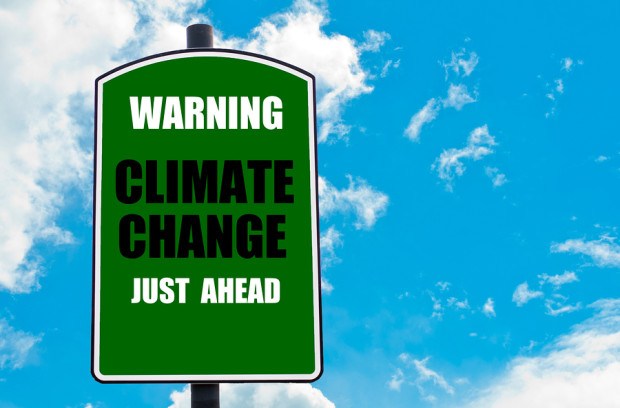New York City’s effort to hold oil and gas producers responsible for costs related to the environmental effects of their products faces an uphill battle as it tries to stretch current law to address climate change.
The biggest city in the U.S. sued BP Plc, Chevron Corp., ConocoPhillips, Exxon Mobil Corp., and Royal Dutch Shell Plc claiming they’re the world’s largest industrial contributors to climate change. Several California municipalities, including San Francisco and Oakland, previously brought similar cases.
The city is seeking to build on successful legal challenges against producers of asbestos, cigarettes and lead paint. New York is using the centuries-old legal concepts of “public nuisance” — an illegal threat to community welfare, such as a brothel, drug den or illegal hazardous waste dump — and “private nuisance,” an unreasonable interference with the use of someone else’s land.
Both theories have been used to attack polluters, though not on the scale of global climate change. The challenge will be to persuade a judge to apply well-worn legal standards to a 21st Century problem.
“There isn’t anything you can point to and say, ‘This is exactly like that case,'” said Michael Burger, executive director of the Sabin Center for Climate Change Law at Columbia Law School in New York. “This is new.”
Representatives of the energy companies pushed back.
“This lawsuit is factually and legally meritless, and will do nothing to address the serious issue of climate change,” Chevron spokesman Braden Reddall said in an email. Curtis Smith, a spokesman for Shell, said by email that climate-change policies “should be addressed through sound government policy and cultural change to drive low-carbon choices,” and not by the courts.
“”Reducing greenhouse gas emissions is a global issue and requires global participation and action,” Exxon Mobil spokesman Scott Silvestri said. “Lawsuits of this kind — filed by trial attorneys against an industry that provides products we all rely upon to power the economy and enable our domestic life — simply do not do that.”
ConocoPhillips declined to comment, while representatives for BP didn’t immediately respond to requests for comment.
Cities have unsuccessfully tried to use nuisance law in the past. The U.S. Supreme Court in 2011 ruled 8-0 against a suit by a group of states and New York City that used federal public nuisance law to target companies operating fossil-fuel burning electric plants.
The court said federal law leaves regulation of greenhouse gas pollutants to the Environmental Protection Agency and doesn’t allow for suits by state and city governments or by private parties. A federal appeals court in California the next year threw out claims by a coastal Alaska village threatened by erosion and storms, applying the Supreme Court ruling.
The suit filed late Tuesday in Manhattan federal court alleges the energy companies violated state law. Because of that, the Supreme Court ruling may not bar the city’s claims from going forward.
The city argued that oil companies denied findings of climate-change scientists despite knowing that the use of gas and oil posed “grave risk” to the planet. New York also claims the oil companies are liable for trespass, or the intrusion of increased heat, flooding and sea-level rise onto city property.
“Defendants are collectively responsible, through their production, marketing and sale of fossil fuels, for over 11 percent of all the carbon and methane pollution from industrial sources that has accumulated in the atmosphere since the dawn of the Industrial Revolution,” lawyers for the city said in the complaint. “Defendants are also responsible for leading the public relations strategy for the entire fossil fuel industry, downplaying the risks of climate change and promoting fossil fuel use despite the risks.”
New York Mayor Bill de Blasio also joined Comptroller Scott Stringer in announcing Wednesday that the city’s five pension funds, which control about $189 billion in assets, intend to divest about $5 billion from more than 190 “fossil fuel reserve owners” within the next five years.
“It’s complex, it will take time, and there are going to be many steps, but we’re breaking new ground, and we are committed to forging a path forward while remaining laser-focused on our role as fiduciaries to the systems and beneficiaries we serve,” Stringer said in a statement.
New York State’s attorney general, Eric Schneiderman, is investigating whether Exxon defrauded shareholders by hiding information about the effect of climate change on the company’s bottom line.
The case against the oil companies is City of New York v. BP Plc, 18-cv-00182, U.S. District Court, Southern District of New York (Manhattan).





















 Large Scale Cargo Ring Busted in LA, $5M Recovered
Large Scale Cargo Ring Busted in LA, $5M Recovered  Is Risk the Main Ingredient in Ultra-Processed Food?
Is Risk the Main Ingredient in Ultra-Processed Food?  State Farm Mutual to Pay $5B Dividend to Auto Insurance Customers
State Farm Mutual to Pay $5B Dividend to Auto Insurance Customers  New Texas Law Requires Insurers Provide Reason for Declining or Canceling Policies
New Texas Law Requires Insurers Provide Reason for Declining or Canceling Policies 




